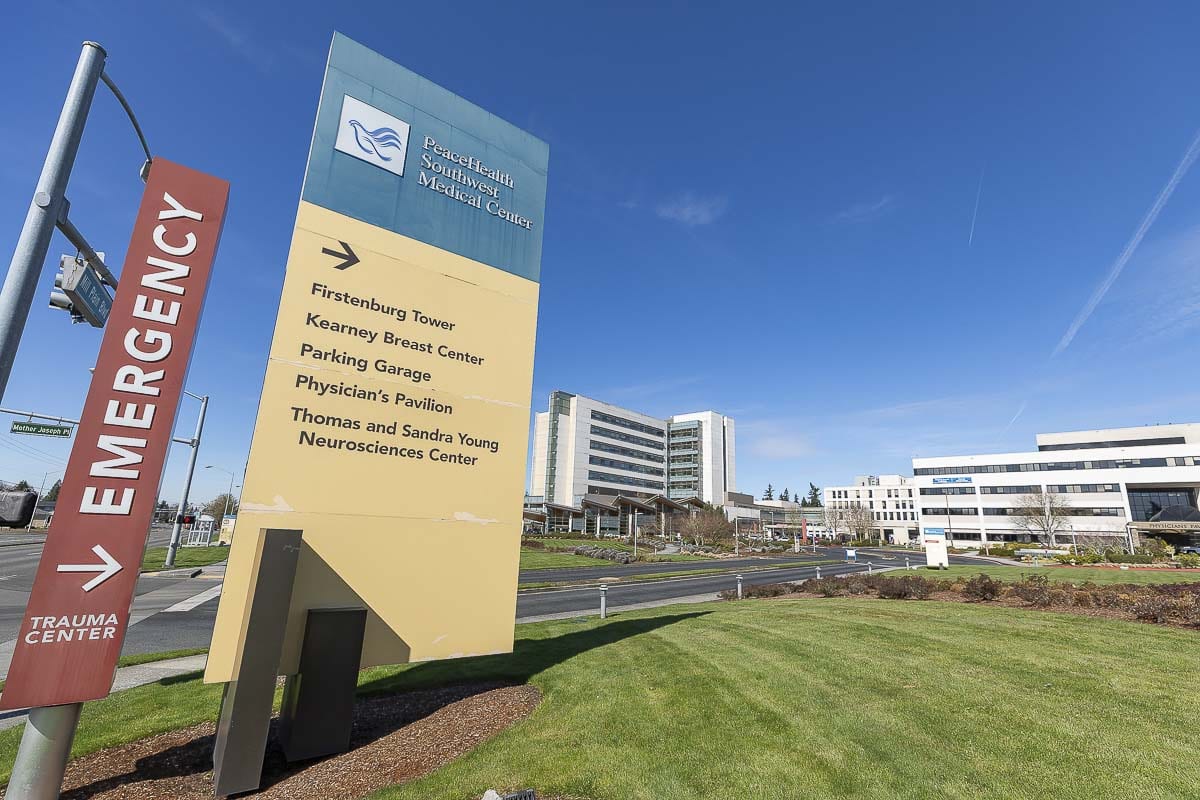Higher Education In Crisis: Exploring The Impact Of Budget Cuts And Staff Reductions

Table of Contents
The Devastating Effects of Budget Cuts on Higher Education
Budget cuts are inflicting severe damage on higher education institutions, leading to a decline in the quality and accessibility of education. The consequences ripple through every aspect of campus life.
Reduced Course Offerings and Increased Class Sizes
Budget cuts directly translate to fewer resources for academic departments. This often means:
- Fewer elective courses available: Students have less choice in their course selection, limiting their ability to explore diverse fields of study and pursue their individual academic interests. This reduces the breadth of their education and limits their opportunities for specialization.
- Increased student-to-faculty ratios: Larger class sizes make it more challenging for professors to provide personalized attention and effective instruction. This impacts student engagement and learning outcomes.
- Potential for lower quality instruction due to overworked professors: Faculty members burdened with larger teaching loads may struggle to dedicate sufficient time to lesson planning, grading, and student interaction, potentially lowering the quality of instruction.
- Impact on student learning experience and outcomes: The cumulative effect of these factors can negatively affect student learning, satisfaction, and overall academic success. Higher student-to-faculty ratios are often correlated with lower graduation rates.
Deteriorating Infrastructure and Resources
Underfunded maintenance and repairs lead to a slow but steady deterioration of campus infrastructure and resources:
- Deferred maintenance leading to building deterioration: Essential repairs are postponed, leading to problems ranging from leaky roofs and outdated HVAC systems to safety hazards. This affects the comfort, safety, and overall learning environment for students and faculty.
- Outdated technology and equipment: Lack of funding for technological upgrades hinders access to essential tools for learning, research, and administrative functions. This puts students at a disadvantage compared to those at better-funded institutions.
- Reduced library resources and access to databases: Libraries, vital centers of academic research, suffer from reduced budgets, leading to fewer books, journals, and online databases available to students and faculty. This restricts research opportunities and limits access to vital information.
- Impact on student and faculty well-being and productivity: A dilapidated campus environment negatively impacts the well-being and productivity of both students and faculty, leading to decreased morale and lower academic performance.
Impact on Research and Innovation
Budget cuts severely hamper research funding and opportunities, threatening the advancement of knowledge and innovation:
- Reduced grant funding for research projects: Fewer research projects are funded, limiting the potential for groundbreaking discoveries and advancements in various fields. Competition for limited funds becomes fiercer.
- Fewer research assistantships available for graduate students: Reduced funding means fewer opportunities for graduate students to gain valuable research experience, impacting their future career prospects.
- Limited access to advanced research equipment and technology: Lack of funds for purchasing and maintaining advanced equipment and technology restricts the scope and quality of research conducted at these institutions.
- Potential decline in research output and innovation: The cumulative effect of these factors can lead to a decline in the overall research output and innovative capacity of higher education institutions. This impacts national competitiveness and societal progress.
The Human Cost: Staff Reductions and Their Ripple Effects
Budget cuts often lead to staff reductions, with devastating consequences for both individuals and the institutions they serve.
Loss of Experienced Faculty and Instructors
Layoffs of experienced faculty and instructors represent a significant loss of institutional knowledge and expertise:
- Loss of institutional knowledge and expertise: Years of accumulated experience and specialized knowledge are lost, impacting the quality of teaching and mentorship provided to students.
- Increased workload for remaining faculty: The increased workload on remaining faculty members can lead to burnout, negatively impacting their teaching effectiveness and overall well-being.
- Negative impact on student advising and support services: Reduced faculty numbers may mean less effective student advising and support services, impacting students' academic success and overall well-being.
- Potential decline in teaching quality and student satisfaction: The loss of experienced faculty can directly affect the quality of teaching and student satisfaction, potentially impacting student retention and graduation rates.
Reduced Support Staff and Services
Cuts to administrative, technical, and support staff have significant repercussions for the smooth functioning of universities:
- Longer wait times for student services: Reduced staff numbers lead to longer wait times for crucial student services, such as financial aid, registration, and academic advising, creating frustration and delays for students.
- Reduced access to technical support and IT services: Fewer IT staff means less effective technical support for students and faculty, hindering their ability to access and utilize essential technology resources.
- Increased administrative burden on faculty and remaining staff: The remaining staff members are often burdened with increased administrative tasks, diverting time and energy away from their core responsibilities.
- Impact on overall campus efficiency and student experience: The overall efficiency and effectiveness of campus operations are reduced, negatively affecting the student experience and institutional productivity.
The Moral and Ethical Implications of Staff Cuts
Staff reductions in higher education raise significant ethical concerns:
- Impact on employee morale and job security: Layoffs create uncertainty and insecurity among employees, negatively impacting morale and productivity. This also impacts their families and communities.
- Potential for increased stress and burnout among remaining staff: Increased workloads and responsibilities contribute to stress and burnout among remaining staff members, affecting their well-being and ability to perform effectively.
- The social responsibility of universities in protecting their workforce: Universities have a social responsibility to protect their workforce, and mass layoffs raise questions about their commitment to their employees' well-being.
- Long-term consequences for the institution's reputation: The manner in which staff reductions are handled can have long-term consequences for the institution's reputation and its ability to attract and retain high-quality faculty and staff in the future.
Conclusion
The crisis in higher education is multifaceted and deeply concerning. Budget cuts and staff reductions have far-reaching consequences, impacting the quality of education, research output, and the well-being of students, faculty, and staff. The long-term implications for our institutions and society as a whole are significant. This "Higher Education in Crisis" demands immediate attention. We must advocate for increased funding and responsible resource allocation to ensure the future of quality higher education. Let's work together to prevent further damage and protect the future of our institutions. Contact your legislators, support higher education advocacy groups, and donate to universities to help alleviate the higher education funding crisis.

Featured Posts
-
 Conservative Revolt Holds Up Gop Tax Plan Demands For Medicaid And Clean Energy Changes
May 18, 2025
Conservative Revolt Holds Up Gop Tax Plan Demands For Medicaid And Clean Energy Changes
May 18, 2025 -
 Taylor Swift Taylors Version Albums Ranked From Worst To Best So Far
May 18, 2025
Taylor Swift Taylors Version Albums Ranked From Worst To Best So Far
May 18, 2025 -
 Only Fans Amanda Bynes Surprising Announcement And Its Implications
May 18, 2025
Only Fans Amanda Bynes Surprising Announcement And Its Implications
May 18, 2025 -
 Highlights From Snls Jack Black Episode Ego Nwodims Standout Performance
May 18, 2025
Highlights From Snls Jack Black Episode Ego Nwodims Standout Performance
May 18, 2025 -
 Exclusive Update Taylor Swift And Blake Livelys Standpoint On The It Ends With Us Legal Dispute
May 18, 2025
Exclusive Update Taylor Swift And Blake Livelys Standpoint On The It Ends With Us Legal Dispute
May 18, 2025
Latest Posts
-
 Spencer Brown In San Francisco Audio Sf Concert May 2nd 2025
May 18, 2025
Spencer Brown In San Francisco Audio Sf Concert May 2nd 2025
May 18, 2025 -
 Destino Ranchs Next Gen Media Infrastructure A Partnership Between Golden Triangle Ventures Lavish Entertainment And Viptio
May 18, 2025
Destino Ranchs Next Gen Media Infrastructure A Partnership Between Golden Triangle Ventures Lavish Entertainment And Viptio
May 18, 2025 -
 Entertainment News Your Daily Dose Of Celebrity Headlines And More
May 18, 2025
Entertainment News Your Daily Dose Of Celebrity Headlines And More
May 18, 2025 -
 Southwest Washingtons Economic Outlook Navigating The Tariff Challenge
May 18, 2025
Southwest Washingtons Economic Outlook Navigating The Tariff Challenge
May 18, 2025 -
 Southwest Washington Preparing For The Impact Of Tariffs
May 18, 2025
Southwest Washington Preparing For The Impact Of Tariffs
May 18, 2025
